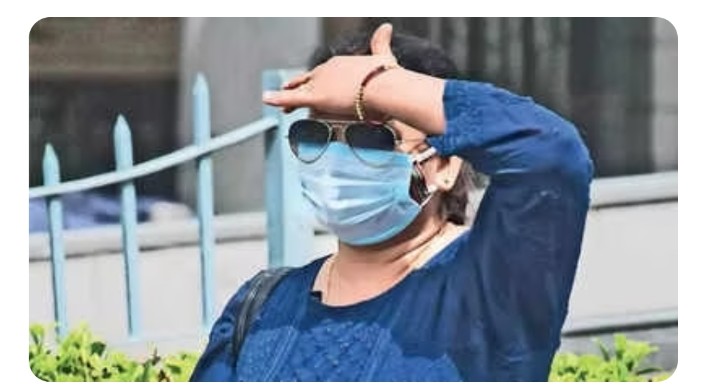The maximum daytime temperature is expected to surpass 47�C...
The India Meteorological Department (IMD) has issued a red alert for several states in north India, including Rajasthan, Punjab, Haryana-Chandigarh-Delhi, and west Uttar Pradesh, as the region continues to experience severe heatwave conditions over the next five days.
The maximum daytime temperatures in these states are expected to surpass 47°C, offering little relief to the people suffering from the intense summer heat.
Naresh Kumar, a senior IMD scientist, stated in an interview, "Temperatures are currently above normal across north west India and we had issued a red alert for the region over the past 2-3 days. With regard to a state-wise forecast, we have issued a red alert in Rajasthan for the next five days. The maximum temperature is likely to inch further up from 45°C and settle at 47°C."
Kumar also mentioned that while Punjab and Haryana have seen a slight decrease in maximum temperatures due to a western disturbance, the temperatures are expected to rise by 2 to 3 degrees in the coming days. The IMD has also issued a red alert for Uttar Pradesh for the next five days and an orange alert for northern parts of Madhya Pradesh. In contrast, the southern states of Tamil Nadu and Kerala are likely to experience heavy to very heavy rainfall, up to 12 cm, over the next 2-3 days.
Due to extreme heat waves, health experts have cautioned people against going outdoors, particularly between 11 am and 4 pm, as the extreme heat can lead to various health issues, ranging from rashes and dehydration to heat exhaustion and heat strokes. Dr. Neeraj Nishchal, a professor at the Department of Medicine in AIIMS, Delhi, emphasized that heat wave conditions can cause physiological strain, which can be life-threatening.
Doctors recommended staying indoors as much as possible to prevent health problems and minimize the impact of the heat wave and while going outside it is necessary to take adequate protection, especially during noon and 3 pm. They also advised to drink sufficient water regularly, wearing lightweight, light-coloured clothes, loose and cotton clothing.




The Brief. Sign up to receive the top stories you need to know right now.